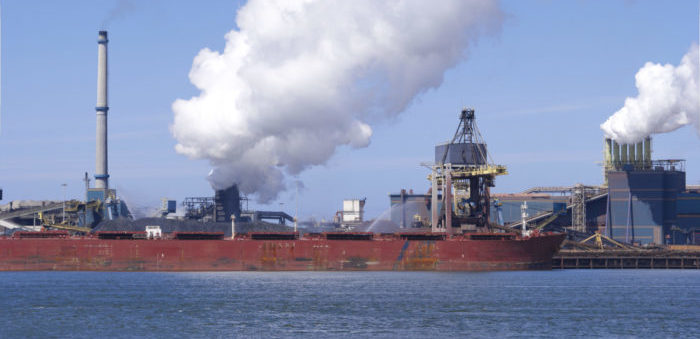Cutting greenhouse gas emissions from shipping and port operations was at the centre of a workshop hosted by the Maritime Authority of Jamaica. The workshop was part of the activities conducted by Jamaica as one of 10 Lead Pilot Countries and the only country in the Caribbean selected to participate in the GloMEEP Project.
The primary objective of the workshop was to assist the ports to assess emissions from cargo handling equipment and to develop strategies to reduce the emissions.
In addition, material from the workshop will be used to form policies and programmes and Jamaica “will transfer this knowledge throughout the Caribbean and other Small Island Developing States.”
The Global Maritime Energy Efficiency Partnerships (GloMEEP) is a project jointly led by Global Environment Facility, UN Development Programme, and IMO, aimed at supporting the uptake and implementation of energy efficiency measures for shipping, thereby reducing greenhouse gas emissions (GHG). The project supports countries with increased shipping activity to implement energy efficiency measures in line with chapter 4 of the MARPOL Convention.
GloMEEP has launched a workshop package, developed in collaboration with International Association of Ports and Harbours (IAPH), on the “Prevention and control of shipping and port air emissions”. Jamaica aims to benefit from this strategic partnership, which aims to train participants in how to undertake a port air emissions assessment, gaining a better understanding of different source categories in ports and how to quantify these. It also provides training on the development of strategies for the reduction of air emissions in ports.
Rear Admiral (Ret’d) Peter Brady, MAJ Director General, said:
The workshop has served to create an acute awareness among many partners in the maritime industry in Jamaica and particularly among persons engaged in diverse activities in our ports. Before this, our thoughts were concentrated more on emissions from ships only, and now we are more sensitized to the contribution to GHGs by activities in the ports, including cargo handling equipment such as forklifts, container cranes and straddle carriers.
Jamaica has one of the largest trans-shipment ports in the Caribbean and the opening of the expanded Panama Canal in 2016 has transformed maritime transport in the country with significant increases in ship sizes transiting its waters and calling at the trans-shipment port in Kingston currently operated by CMA CGM though Kingston Freeport Terminal Limited.
































































